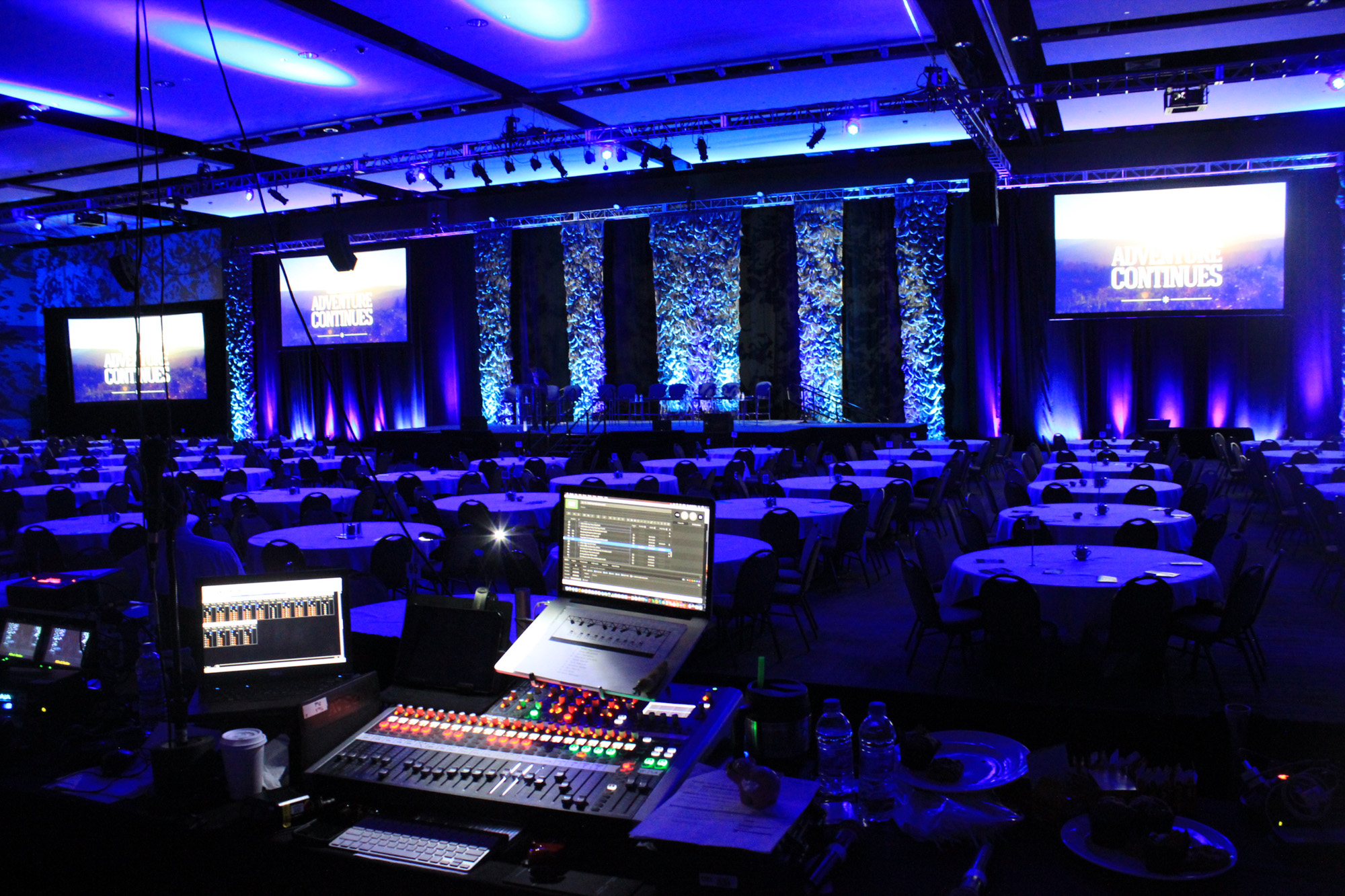Understanding the Principles of Event Production
The complexities of event manufacturing need a comprehensive understanding of a number of fundamental components, including the facility of clear objectives, precise budgeting, and calculated place option. Each component plays a critical function in the seamless implementation of an occasion, affecting every little thing from target market involvement to logistical performance. Furthermore, the technical aspects of production and the dynamics of team coordination are similarly necessary to attaining a natural end result. As we check out these important aspects, one have to take into consideration just how they relate and affect the general success of an event. What strategies can be utilized to harmonize these elements effectively?
Defining Event Purposes
Specifying event purposes is a critical action in the occasion production process, offering as the structure whereupon all preparation and implementation are developed. Clear goals provide instructions, ensuring that all stakeholders recognize the event's purpose and preferred outcomes. These goals ought to be particular, quantifiable, possible, pertinent, and time-bound (WISE), which enables effective assessment of success post-event.
Determining the target audience is important fit the objectives. Understanding their interests, assumptions, and demographics allows event coordinators to tailor web content and experiences that resonate with attendees. Additionally, lining up the goals with more comprehensive business goals promotes support from management and stakeholders, making sure that the event adds to the general goal.
It is essential to connect these goals clearly to all team members entailed in the preparation procedure. By establishing well-defined objectives, occasion manufacturers can produce a structured framework that overviews decision-making and source allowance, eventually leading to a successful occasion.
Budgeting for Success
Reliable budgeting is crucial for the effective production of any occasion, as it gives a monetary framework that supports all intending activities. A well-structured budget allows occasion coordinators to assign resources successfully, making certain that every element of the event is appropriately moneyed while reducing the risk of overspending.
To develop an efficient spending plan, begin by identifying all possible costs, such as venue prices, wedding catering, enjoyment, devices rentals, and advertising and marketing. It is vital to categorize these expenditures into fixed and variable expenses, which aids in understanding which aspects are non-negotiable and which can be adjusted based upon financial restraints.
Additionally, earnings sources must be identified early in the budgeting process. This consists of ticket sales, sponsorships, and product sales. By approximating potential revenue, planners can align their expenditures accordingly, making certain that the event stays financially feasible.
Regular tracking of the spending plan throughout the planning process is essential. This enables adjustments to be made as required, keeping financial self-control. Inevitably, an effective budget plan not just safeguards against unforeseen costs however additionally boosts the general top quality and experience of the event, guaranteeing its success.
Venue Selection Approaches
Choosing the appropriate venue is a critical part of successful occasion manufacturing, as it sets the phase for the total experience. The very first step in place choice is to specify the event's goals and audience, which will certainly direct the choice of place and ability. Considerations such as availability, ambiance, and available services should align with the event's theme and objective.
Following, review the place's capability to fit your expected number of guests while guaranteeing comfort and engagement. It is vital to go to potential places face to face to examine their design, facilities, and total allure. Furthermore, evaluate logistical aspects consisting of car park schedule, public transport access, and any constraints that may impact the occasion.
Budget plan restrictions are also extremely important; make certain that the location fits within financial criteria while using necessary solutions. Contract negotiations must be approached with persistance, seeking openness relating to additional prices, cancellation plans, and liability coverage.
Finally, take into consideration the location's reputation and previous efficiency for similar occasions (Audio Visual Services). Engaging with previous clients can give important understandings into the place's reliability and solution high quality, ultimately helping in making an informed choice

Technical Manufacturing Components
Technical manufacturing components function as the backbone of any kind of occasion, making sure that all audio, aesthetic, and lighting parts function harmoniously to Learn More Here create an immersive experience. These aspects encompass a selection of innovations and methodologies intended at providing content successfully and engagingly.
Audio systems are essential, including microphones, audio speakers, and mixing tools to guarantee clear audio shipment. High-quality audio is More Info crucial for preserving audience involvement, especially in bigger locations. Visual elements consist of forecast systems, LED displays, and video feeds, which boost the aesthetic narrative of the occasion and support the general motif.
Illumination plays a pivotal duty in setting the state of mind and leading audience emphasis. A well-designed illumination strategy incorporates different strategies, such as spotlights, ambient lights, and color laundries, to create dynamic environments appropriate for various sections of the occasion.
Furthermore, technological production aspects need careful preparation and assimilation. This includes pre-event noise checks, video clip rehearsals, and illumination examinations to resolve potential difficulties prior to the event begins. Eventually, a natural technological manufacturing approach not only boosts the event experience but likewise mirrors the expertise and interest to information that individuals expect.

Group Sychronisation and Roles
Effective event production hinges on smooth group sychronisation and clearly defined duties amongst all participants. For an event to run efficiently, each group member must understand their duties and exactly how they contribute to the overall vision.
Reliable interaction is important in this collaborative setting. Audio Visual Services. Routine meetings and updates ensure all group members are aligned and can adjust to any type of changes or challenges that emerge. Using project monitoring devices can facilitate this interaction, permitting real-time updates and task monitoring
Furthermore, fostering a society of teamwork is essential. Urging partnership amongst varied ability not only boosts problem-solving yet likewise promotes a favorable working ambience. When employee feel valued and encouraged, their efficiency increases, inevitably causing Find Out More a more effective event.
Verdict
Finally, a comprehensive understanding of occasion production incorporates defining clear purposes, establishing a durable budget, choosing an appropriate location, managing technological manufacturing aspects, and making certain efficient team sychronisation. Each component plays an essential function in the general success of an event. By carefully addressing these basics, occasion planners can improve the participant experience, optimize resources, and attain wanted outcomes, thus adding to the event's total effectiveness and impact within the designated target market.
The intricacies of event manufacturing require an extensive understanding of a number of fundamental aspects, consisting of the facility of clear objectives, precise budgeting, and calculated place selection.Defining event goals is an essential step in the event production process, offering as the structure upon which all planning and execution are constructed. By establishing well-defined goals, event producers can develop a structured framework that guides decision-making and resource allowance, eventually leading to a successful event.
In conclusion, a detailed understanding of occasion production includes specifying clear goals, developing a durable spending plan, selecting a suitable location, taking care of technological manufacturing components, and ensuring effective group control. By diligently resolving these principles, occasion organizers can enhance the attendee experience, enhance resources, and accomplish desired end results, therefore adding to the occasion's general efficiency and impact within the desired audience.